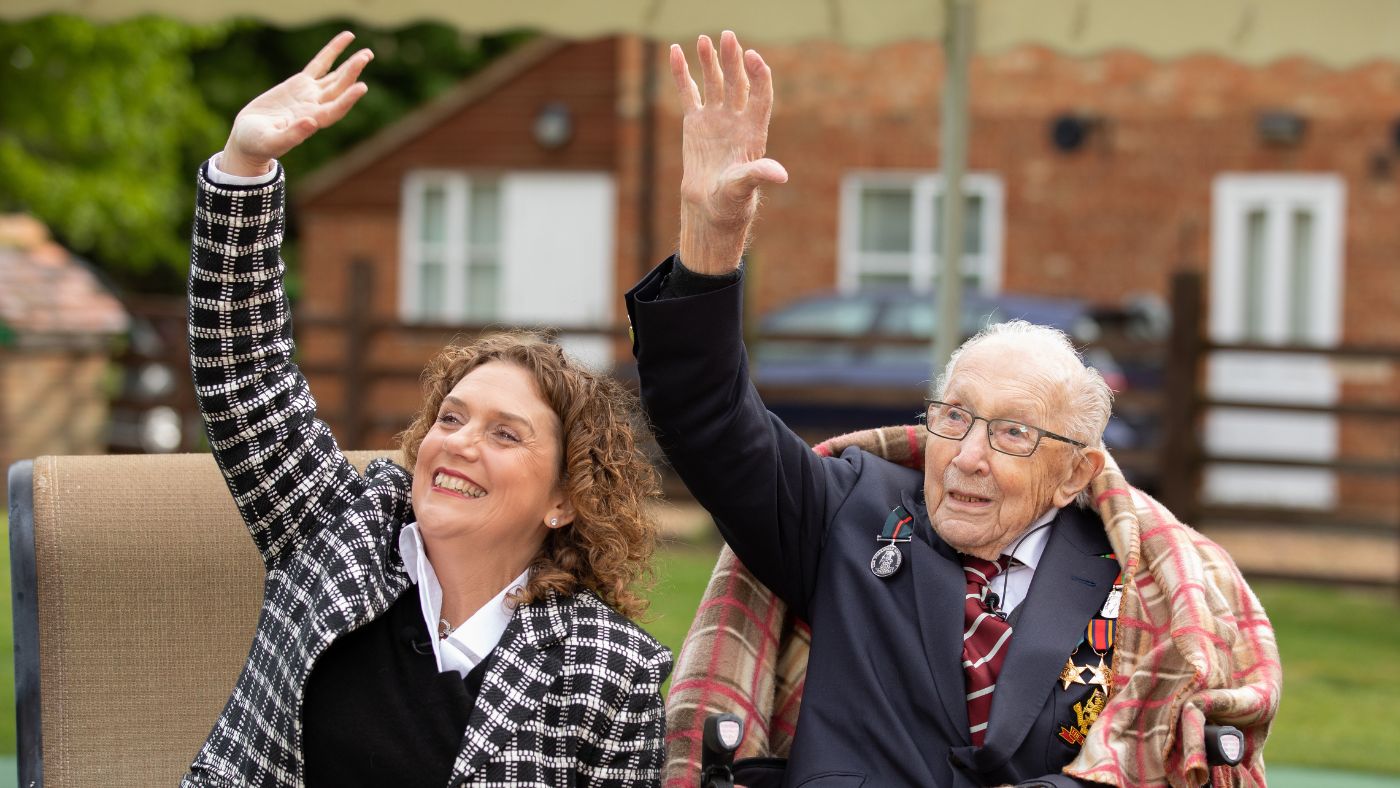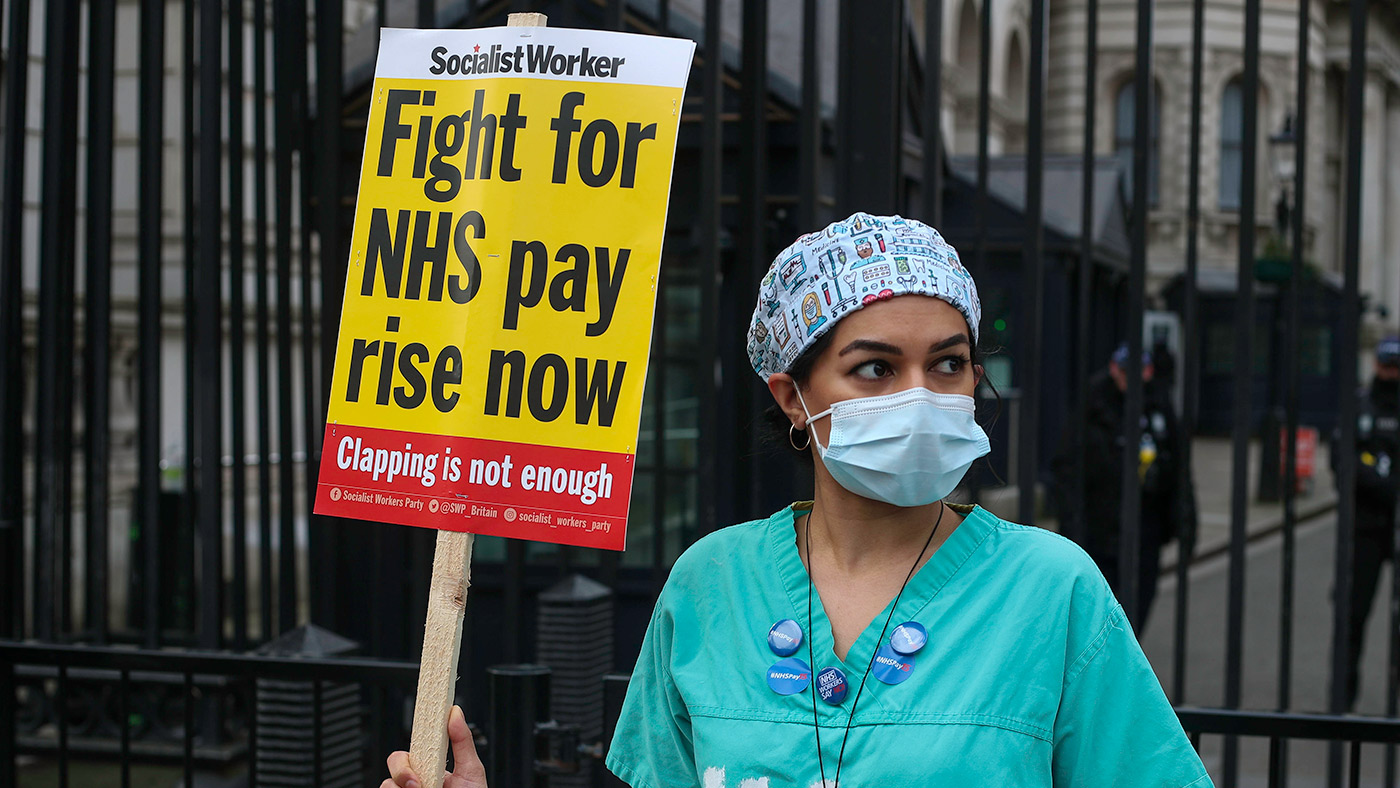Insomnia: what is it and can it be cured?
The Week looks at the disorder that has kept ITV News anchor Tom Bradby off work for more than a month

A free daily email with the biggest news stories of the day – and the best features from TheWeek.com
You are now subscribed
Your newsletter sign-up was successful
ITV anchorman Tom Bradby has been absent from News At Ten for more than a month as a result of “crippling insomnia”, it has emerged.
Bradby, 51, has been unable to work on the live news show and may even have to miss his friend Prince Harry’s wedding, where he was expected to be a guest, The Sun reports.
An anonymous source claimed that the news man is “dealing with insomnia and is resting and having some time to recuperate” , but will be off for at least another three weeks, says the Daily Express.
The Week
Escape your echo chamber. Get the facts behind the news, plus analysis from multiple perspectives.

Sign up for The Week's Free Newsletters
From our morning news briefing to a weekly Good News Newsletter, get the best of The Week delivered directly to your inbox.
From our morning news briefing to a weekly Good News Newsletter, get the best of The Week delivered directly to your inbox.
Insomnia is one of the most common sleep disorders, affecting millions of people worldwide. So what are the symptoms and is there a cure?
What is insomnia?
Symptoms of insomnia include difficulty falling asleep, waking up often during the night, and waking too early. The effects of such disturbed sleeping patterns can be “devastating”, says Medical News Today.
Insomnia is something of a blanket term, and the disorder can be caused by an array of different factors.
A free daily email with the biggest news stories of the day – and the best features from TheWeek.com
WebMD says there are two types of insomnia. The first is primary insomnia - when a person develops sleep problems that are not directly associated with another health condition.
Secondary insomnia means that a person is having sleep problems as a result of another factor, such as a health condition (asthma, depression, arthritis or cancer have all been linked to insomnia). Some medications and recreational substances, such as alcohol, can also disrupt sleep.
How common is insomnia?
Around a third of Brits suffer from insomnia, according to The Times.
“Some doctors claim that its prevalence is becoming worse, perhaps because of the profusion of electronic devices and bright screens that we take into our bedrooms,” the newspaper says.
Around a quarter of sufferers in the UK claim to have suffered insomnia for 11 years or more, and 79% for at least two years, according to a 2012 Great British Sleep Survey. Experts believe a total of at least 200,000 working days are lost every year in the UK as a result of insomnia.
Can insomnia be cured?
The NHS recommends that people suffering insomnia follow a set of guidelines aimed at developing a healthy sleep pattern. These include going to bed at the same time every day, only going to bed when you feel tired, relaxing for at least an hour before bed, making sure your bedroom is dark and quiet, and exercising regularly during the day.
Health experts also recommend that sufferers avoid eating big meals late at night, try not to use electronic devices before sleep, and resist the urge to have naps during the day.
The NHS says people with insomnia should speak to their GP if those changes fail to lead to improved sleep pattern after a month, or if the condition “is affecting your daily life in a way that makes it hard for you to cope”.
Doctors may recommend cognitive behavioural therapy (CBT) and will only prescribe sleeping pills in extreme circumstances, as they can have serious side effects and patients can become dependent on them.
-
 Why is the Trump administration talking about ‘Western civilization’?
Why is the Trump administration talking about ‘Western civilization’?Talking Points Rubio says Europe, US bonded by religion and ancestry
-
 Quentin Deranque: a student’s death energizes the French far right
Quentin Deranque: a student’s death energizes the French far rightIN THE SPOTLIGHT Reactions to the violent killing of an ultraconservative activist offer a glimpse at the culture wars roiling France ahead of next year’s elections
-
 Secured vs. unsecured loans: how do they differ and which is better?
Secured vs. unsecured loans: how do they differ and which is better?the explainer They are distinguished by the level of risk and the inclusion of collateral
-
 Captain Tom charity closes to donations amid daughter’s pool row
Captain Tom charity closes to donations amid daughter’s pool rowSpeed Read Hannah Ingram-Moore to appeal council order to demolish spa complex at her home
-
 The Week Unwrapped: Sex and health, the Earth’s core and another new year
The Week Unwrapped: Sex and health, the Earth’s core and another new yearpodcast Is the NHS failing British women? What’s going on at the centre of our planet? And what’s in a date?
-
 National nursing strike: should the patient ‘always come first’?
National nursing strike: should the patient ‘always come first’?Talking Point Recent YouGov poll found that 65% of public approves of strike action
-
 The science behind lab-grown blood
The science behind lab-grown bloodfeature Development of ‘absolute game changer’ could help those with sickle cell and other conditions
-
 ‘Love Island should take pride in including the queer community’
‘Love Island should take pride in including the queer community’Instant Opinion Your digest of analysis from the British and international press
-
 ‘Moving CBBC online isn’t modernisation – it’s dangerous’
‘Moving CBBC online isn’t modernisation – it’s dangerous’Instant Opinion Your digest of analysis from the British and international press
-
 The Week Unwrapped: Quitting China, social age checks and dental deserts
The Week Unwrapped: Quitting China, social age checks and dental desertspodcast Why has AirBnB given up on China? Are social networks finally taking age limits seriously? And why is it so hard to find a dentist?
-
 ‘Negotiation with Putin would be a moral disaster’
‘Negotiation with Putin would be a moral disaster’Instant Opinion Your digest of analysis from the British and international press